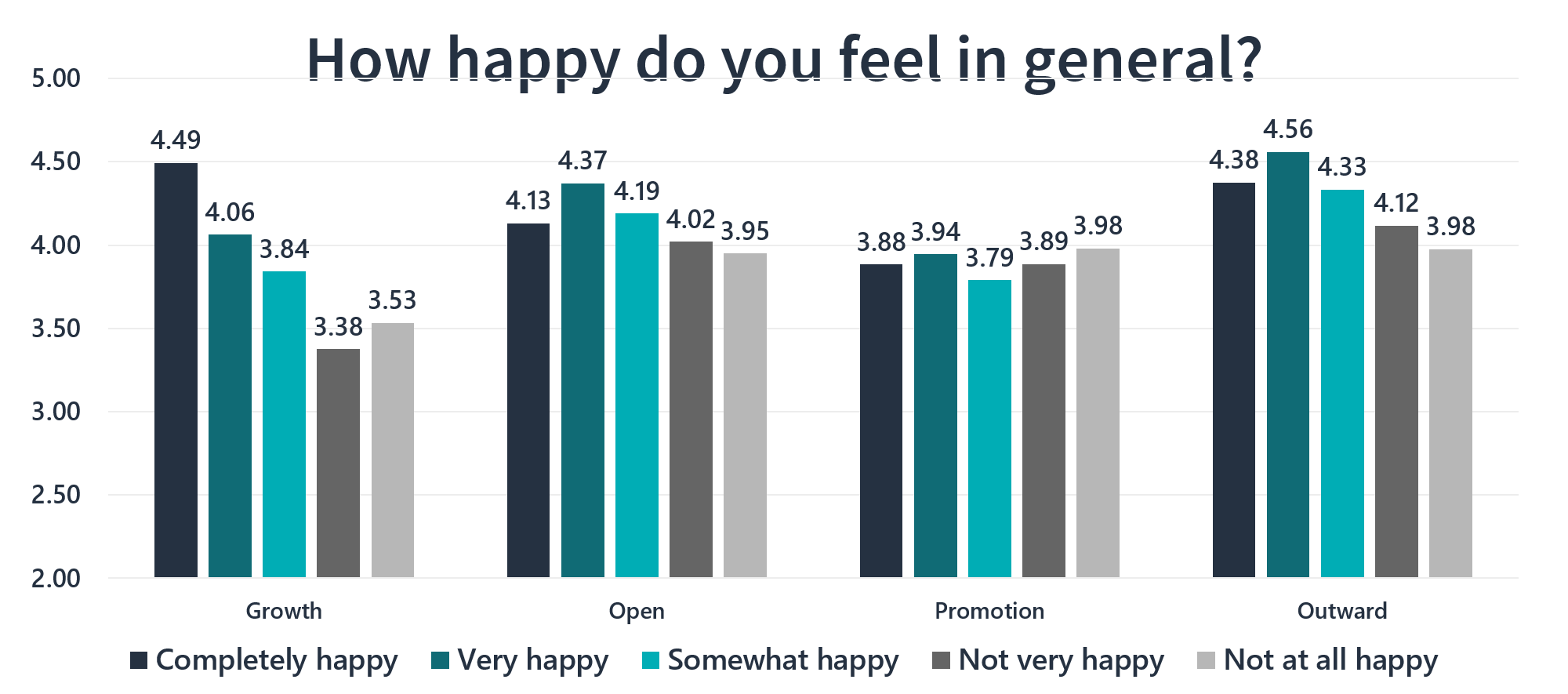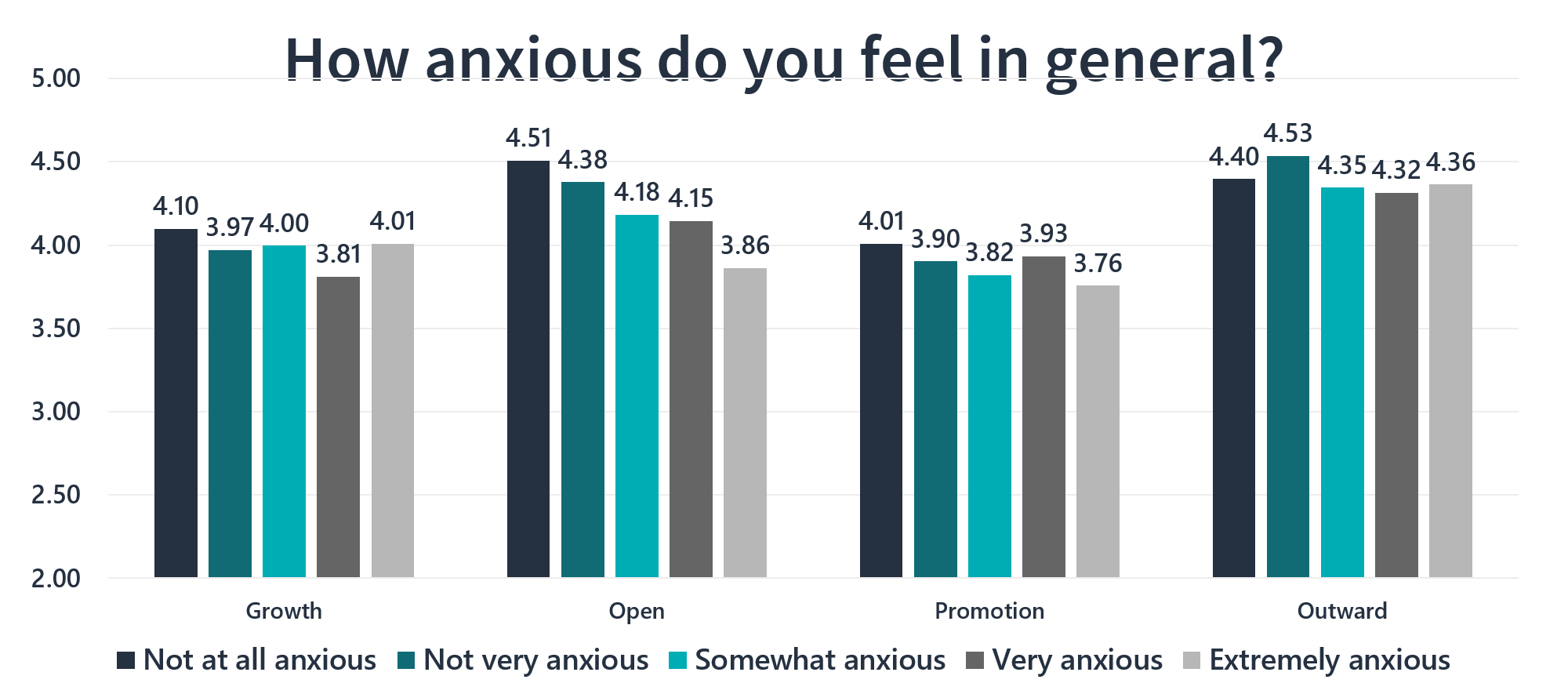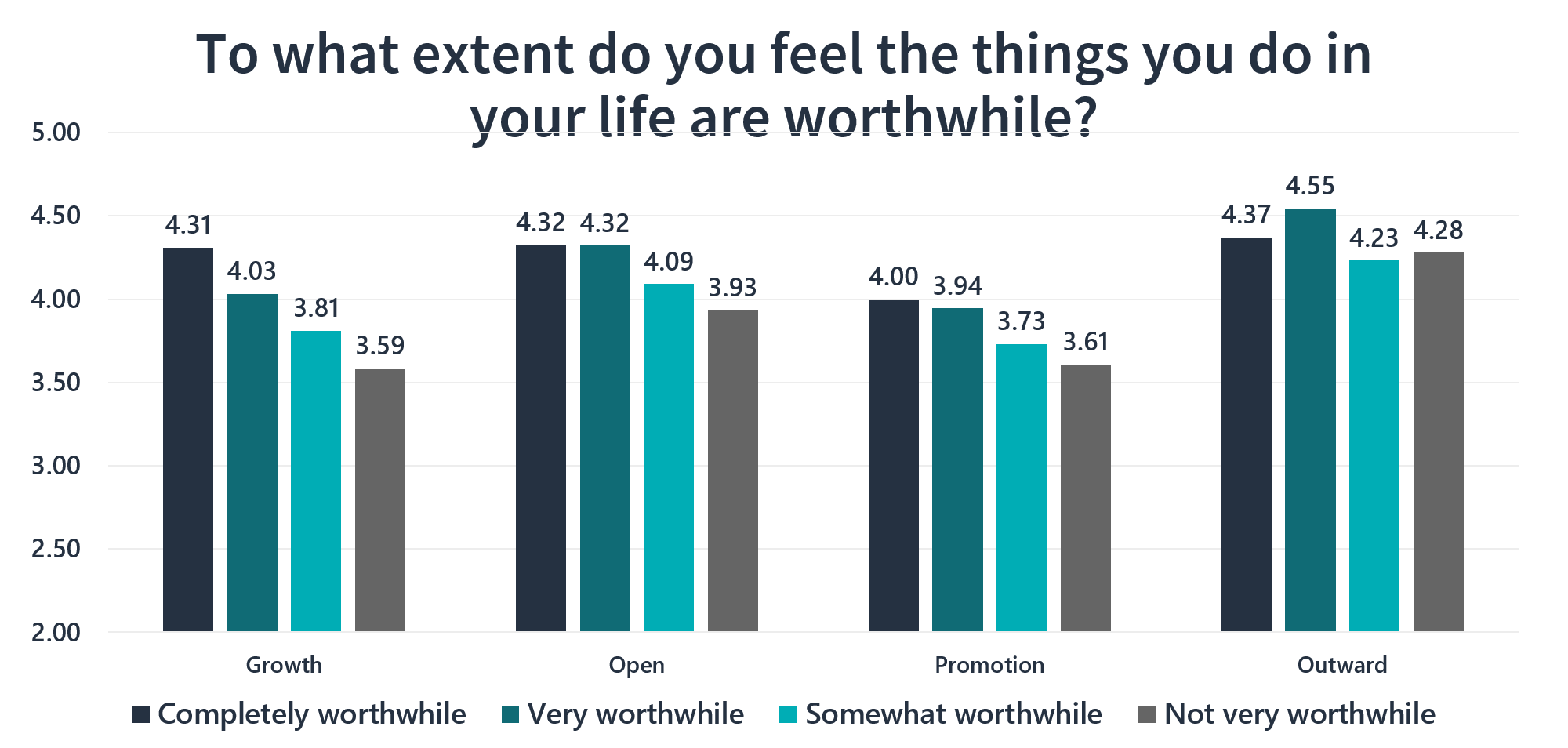One of my biggest learnings over the last year is that there is a connection between trauma and quality of mindsets. Our body’s natural response to trauma is to take on negative mindsets (fixed, closed, prevention, and inward mindsets) as a form of self-protection. And, as we heal from mindsets, we develop more positive mindsets, and vice versa.
Thus, I am aware that there is a connection between mindsets and our mental state.
But, I haven’t been able to collect data on this until recently.
I partnered with Aimpoint Research to investigate how mindsets might differ across different demographic profiles, including political affiliation, income level, gender, education level, generation, geographic region (in the United States). As part of this effort, we were also able to collect data to look at the relationship between mindsets and mental state.
Research Information
Our sample was designed to be a decently close representation of the United States population at large. We ended with a sample of 587.
What I am presenting to you is the average mindset scores across different levels of happiness, anxiety, and feelings of doing things that are worthwhile (all common well-being measures).
While the data is interesting, it does have some limitations.
First, we were not able to fully investigate whether mindsets cause mental states or whether mental states cause mindsets. I imagine that this relationship is reciprocal. The results presented below infer that mental state quality affects mindset quality.
Second, while the differences shown are meaningful, the results ARE NOT technically statistically significant.
What this means is that we can infer that while one group (e.g., Not at all happy) may have a more negative mindset than another group (e.g., Completely happy), we may find some people that are “Not at all happy” that have more positive mindsets than people that are “Completely happy.”
Regardless, it is interesting to see the differences.
Mindset Differences by Mental State Quality
Happiness

Findings:
- There seems to be a pretty clear and strong relationship between happiness level and growth mindset, such that those that are happier are more growth-minded.
- Those that are the least happy, are the most close-minded.
- Happiness doesn’t seem to play a roll in how promotion-minded someone is.
- Those that are least happy are the most inward-minded.
Anxiety

Findings:
- One’s anxiety level doesn’t seem to have much of a bearing on one’s growth-mindedness, although the group that is the most growth-minded has the least anxiety.
- There seems to be a pretty clear and strong relationship between anxiety level and open-mindedness, such that those with less anxiety are more open-minded.
- One’s anxiety level doesn’t seem to have much of a bearing on one’s promotion-mindedness, although the group that is the most promotion-minded has the least anxiety.
- One’s anxiety level doesn’t seem to have much of a bearing on one’s outward-mindedness.
What You Do is Worthwhile

Findings:
Something to keep in mind about these findings is that the group that answered “Not at all worthwhile” is rather small, which I think is skewing
- There seems to be a pretty clear and strong relationship between feelings of worth and growth mindset, such that those that feel they are doing things that are worthwhile are more growth-minded.
- There seems to be a pretty clear and strong relationship between feelings of worth and open mindset, such that those that feel they are doing things that are worthwhile are more open-minded.
- There seems to be a pretty clear relationship between feelings of worth and promotion mindset, such that those that feel they are doing things that are worthwhile are more promotion-minded.
- There seems to be a trend point toward those that feel they are doing things that are worthwhile are more outward-minded.
Conclusion
I believe that these results largely confirm the not-so-far-fetched idea that there is a connection between mindsets and mental states.
What is interesting to me is that, of the aspects of well-being that we measured, the one that seems to be most consistently related to all four sets of mindsets is a feeling that one is doing things with their life that are worthwhile.
I would like to believe that when we are focused on doing things that make our lives feel worthwhile, we develop more positive mindsets because it is only by taking on the positive mindsets that we will be able to accomplish those worthwhile things.
If you want to take the mindset assessment for yourself, you can take it here: FREE Personal Mindset Assessment










